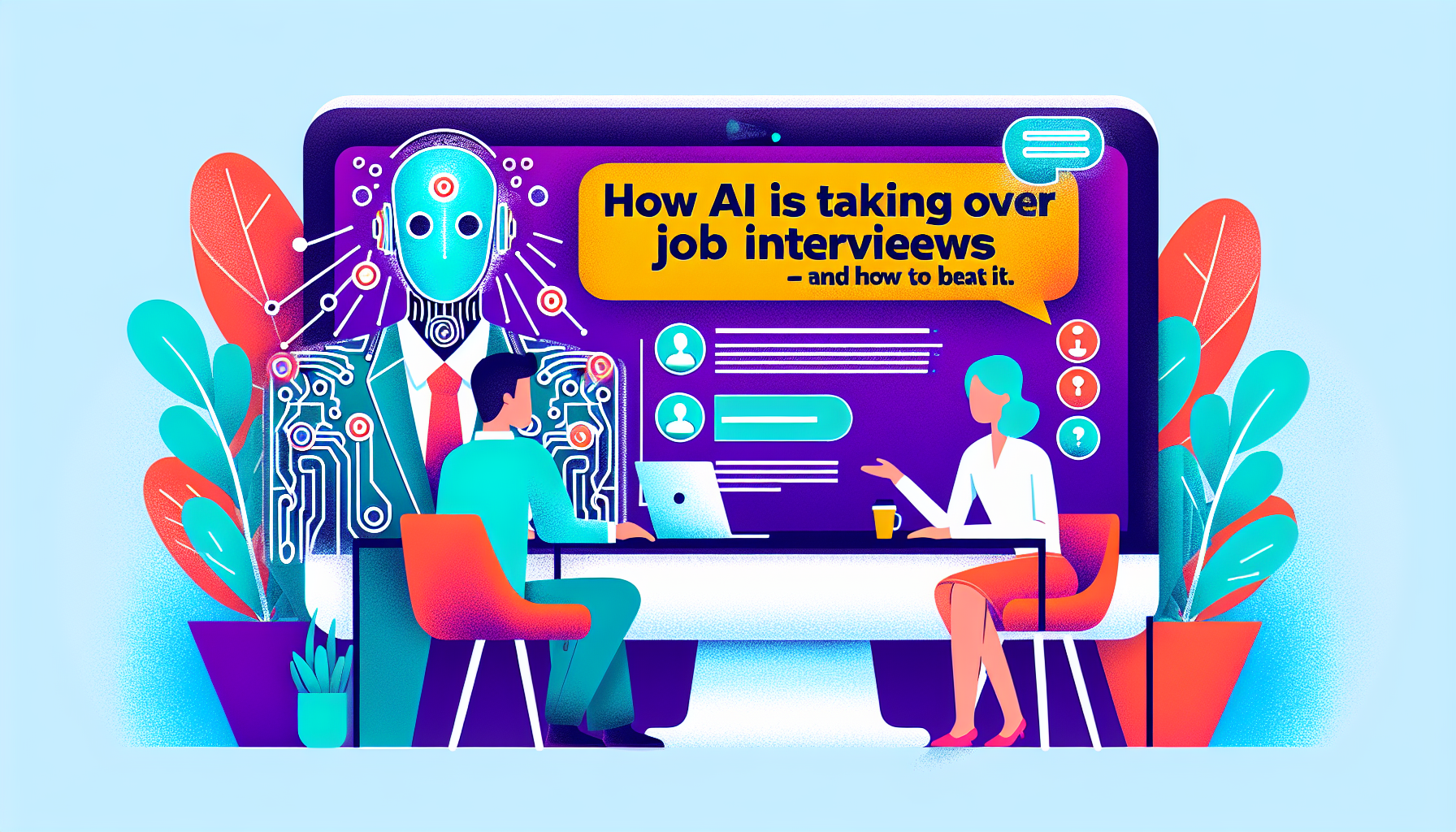In recent years, the landscape of job interviews has undergone a significant transformation, driven by advancements in artificial intelligence (AI). From automated screening systems to AI-powered interview platforms, technology is reshaping how employers assess candidates. While this shift offers various benefits, such as efficiency and reduced bias, it also presents challenges for job seekers. In this blog post, we will explore how AI is influencing job interviews and provide strategies for candidates to navigate this evolving process successfully.
The Rise of AI in Job Interviews
AI’s integration into the hiring process has become increasingly prevalent. Many companies are now using AI tools to streamline their recruitment efforts. Here are some key ways AI is taking over job interviews:
1. Resume Screening: AI algorithms can quickly sift through thousands of resumes, identifying keywords and relevant experiences that match the job description. This automated process speeds up the initial screening, allowing HR teams to focus on a smaller pool of qualified candidates.
2. Chatbots for Preliminary Interviews: Some organizations employ AI-powered chatbots to conduct initial interviews. These chatbots can ask pre-set questions and evaluate responses, providing employers with a quick assessment of a candidate’s suitability.
3. Video Interview Analysis: AI tools are increasingly used to analyze video interviews. These systems can assess candidates’ body language, tone of voice, and even facial expressions to gauge their confidence and suitability for the role.
4. Predictive Analytics: AI can analyze past hiring data to predict which candidates are likely to succeed in specific roles. By evaluating patterns, employers can make more informed decisions about whom to interview.
Benefits of AI in the Hiring Process
The incorporation of AI into job interviews comes with several advantages:
– Efficiency: AI can process large volumes of applications in a fraction of the time it would take a human recruiter, allowing companies to fill positions more quickly.
– Reduced Bias: AI systems can be programmed to focus on skills and qualifications rather than personal characteristics, helping to mitigate unconscious bias in hiring.
– Consistency: AI tools provide a standardized approach to interviews, ensuring that all candidates are assessed based on the same criteria.
Challenges for Job Seekers
Despite the benefits, the rise of AI in job interviews poses challenges for candidates:
– Lack of Personal Touch: Automated interviews can feel impersonal, making it harder for candidates to showcase their personalities and unique experiences.
– Algorithmic Bias: While AI aims to reduce bias, it can inadvertently perpetuate existing biases if the data it learns from is biased.
– Adaptation to Technology: Candidates may struggle to adapt to new AI-driven interview formats, particularly if they are unfamiliar with the technology.
How to Beat AI in Job Interviews
While AI may dominate the hiring landscape, candidates can take several steps to enhance their chances of success. Here are some strategies to help you stand out:
1. Optimize Your Resume for ATS: Many companies use Applicant Tracking Systems (ATS) to screen resumes. Tailor your resume to include relevant keywords from the job description, ensuring it passes through the initial screening.
2. Prepare for Chatbot Interviews: If you encounter a chatbot during the interview process, treat it as you would a human interviewer. Be clear and concise in your responses, and remember that the AI is assessing your communication skills.
3. Practice AI Video Interviews: Utilize AI-powered interview platforms that simulate real interview scenarios. Familiarize yourself with the technology and practice answering questions while being mindful of your body language and vocal tone.
4. Research the Company and Role: Show genuine interest in the company by researching its values, culture, and mission. Tailor your answers to align with the organization’s goals, demonstrating that you’re not just a good fit for the role but also for the company.
5. Highlight Soft Skills: While AI can assess certain competencies, it may struggle to evaluate soft skills such as empathy, teamwork, and communication. Use specific examples to illustrate how you’ve demonstrated these skills in previous roles.
6. Follow Up with a Personal Touch: After the interview, send a personalized thank-you note to the interviewer. This gesture reinforces your interest in the position and adds a human element to the process.
7. Stay Informed About AI Trends: Understanding how AI is being used in recruitment can help you prepare better. Stay updated on the latest trends in AI and how they impact the job market.
Conclusion
As AI continues to reshape the job interview landscape, candidates must adapt to stay competitive. While AI offers efficiency and consistency in the hiring process, job seekers can leverage their unique qualities and skills to stand out. By optimizing resumes, practicing interview techniques, and emphasizing soft skills, candidates can navigate the challenges posed by AI and secure their desired positions. Embrace the changes, stay informed, and remember that while AI may analyze data, it’s the human touch that truly makes a difference in the hiring process.

Leave a Reply